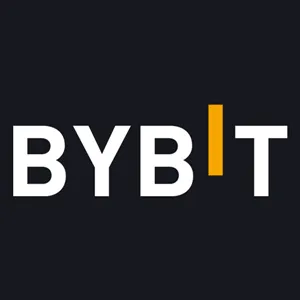More “options” for trading crypto options become available every year. As such, researching all of the best features that make an options trading platform worthwhile can take hours. This is time you could have spent trading! In crypto, it’s always our advice to DYOR. But we can help point you in the right direction. Read on to discover the nine best crypto options trading platforms on the market today.
BeInCrypto Trading Community in Telegram: read reviews on the best crypto platforms, discuss crypto projects, read technical analysis on coins & get answers to all your questions from PRO traders & experts!
- What is crypto options trading?
- 9 best crypto options trading platforms
- Binance
- Bybit
- GateIO
- Huobi
- OKX
- Lyra
- Deribit
- Dopex
- Best qualities of a crypto options trading platform
- Crypto options trading platforms compared
- Choose the best crypto options trading platform for your personal needs
- Frequently asked questions
What is crypto options trading?

Before we dive into the top crypto exchanges for options trading, here’s a quick rundown of options contracts. Trading crypto options is very similar to trading traditional options. Crypto options give an investor the right, but not the obligation, to buy or sell crypto at a predetermined price and date.
There are two main types of options contracts. A call option gives an investor the opportunity to buy stocks or digital assets at a predetermined price in the future. Likewise, a put option allows an investor to sell a stock or digital asset at a predetermined price in the future.
We call the price of an option the premium. The predetermined price that an investor can buy or sell at is the strike price. The predetermined date that the investor must exercise the option contract by is the expiration date. An options writer is someone that sells options.
Writers sell call or put options, covered or uncovered. When a writer sells an option but does not have the underlying asset, this is referred to as uncovered. Conversely, when the writer does hold the asset, the option is covered. An underlying asset is the security or digital asset that must be delivered when a trader exercises the option. In our case, the underlying asset is crypto.
9 best crypto options trading platforms
Now for the fun part, what are the top crypto options trading platforms? Only you can determine what the best options trading platform for you is. However, there are a few that stand above the rest.
Binance

In addition to options, they also offer futures, perpetual, and spot trading. Binance has a long list of coins and tokens available for traders. They are typically very quick to list popular coins. Furthermore, the world-renowned exchange also lets users stake their crypto.
Binance has its own blockchain (BNB chain) and token (BNB). BNB chain has a budding ecosystem of DApps built on its blockchain. In addition, traders holding BNB can take advantage of trade discounts. The exchange supports a variety of trade orders: limit, market, stop-limit, and one-cancels-the-other (OCO) orders. Lastly, Binance has a robust NFT marketplace that is sure to please any trader.
Transaction fee – 0.02%
Exercise fee – 0.015%
- Offers a helpful guide to options trading on Binance
- Simple trading interface
- Low trading fees
- Beginner friendly
- European-style only
- No stop limit
- Limited contracts (BTC, ETH, BNB)
Bybit

Options on Bybit are settled in the European style. Moreover, contracts available on the trading platform are ETH, BTC, and SOL. Bybit does not offer options alone; you can also trade futures, perpetuals, and spot trade. In addition, it allows up to 100x leverage for the brave and bold.
One of Bybit’s key features is its insurance fund. Simply put, Bybit’s insurance fund is a reserve that the system can draw from to safeguard traders in select circumstances. The crypto exchange also has advanced trading tools to support seasoned traders.
Maker fee – 0.03%
Taker fee – 0.03%
Delivery Fee – 0.015%
Liquidation Fee – 0.2%
- Advanced trading tools
- Up to 100x leverage
- Allows paper trading
- Multiple order types
- Not available in the US
- Limited contracts (ETH, BTC, SOL)
GateIO

This global exchange has a suite of products. Users can enjoy everything from European-style vanilla options on BTC and ETH to perpetuals and even spot trading. The crypto trading exchange also allows copy trading and bots.
Furthermore, users are not limited to trading on GateIO. You can delve into the world of borrowing and lending as well. The exchange supports crypto loans and liquidity mining, too. Speaking of mining, users can also use the platform for cloud mining. To top it all off, GateIO offers a Gate Visa card, which you can use worldwide.
N/A
- Has simulation trading
- Simple interface
- Cluttered display
- Limited contracts (BTC and ETH)
- The options trading fee schedule is not transparent
Huobi

Unlike most of our choices, Huobi has both European and American-style options. Users can also enjoy spot trading, futures, and margin trading. To top things off, you can even use a trading bot.
Huobi also supports OTC and crypto loans. Users can engage in staking, voting, and Huobi Earn. Huobi Earn allows you to earn passive income on your crypto. The company also has a cloud wallet and a global crypto wallet, which acts as a gateway to web3.
Only buyers of in-the-money options are required to pay delivery transaction fees, which are limited to 12.5% of the delivery profits
Each transaction fee shall not exceed 12.5% of the premium charged
BTC options (per contract)
– Maker fee: 0.002
– Taker fee: 0.005
– Delivery fee: 0.002
ETH options
– Maker fee: 0.0005
– Taker fee: 0.00125
– Delivery fee: 0.005
VIP clients enjoy preferential fees and rebates
- European and American-style options
- Multiple expiries
- Simple interface
- Limited support for fiat deposits
- Not available in the U.S.
OKX

OKX offers European-style options contracts with multiple due date options. They settle their contracts for options in BTC, ETH, SOL, and other cryptocurrencies. The trading interface is tailor-made for advanced traders. There are also futures, perpetuals, and spot and margin trading.
You may also take advantage of the Earn products on the platform, which includes staking to earn yield. If you need a loan, OKX offers multiple loan plans. OKX is also dedicated to web3, offering products for developers on its native blockchain OKB, such as a Hackathon.
The fee structure of OKX’s options trading platform is tiered. Fees vary by:
VIP users: assets (USD) ≥ 100,000 | 30-day trading volume ≥ 5,000,000
Regular users: OKB holdings, assets < 100,000 | trading volume < 5,000,000 Regular users Maker fees: 0.02%-0.015% Taker fees: 0.03% VIP users Maker fees: 0.01%- (-)0.01% Taker fees: 0.02%-0.013%.
- Advanced user interface
- Integration with trading view
- Supports multiple languages
- Doesn’t natively support fiat deposits
- Limited contracts (BTC and ETH)
Lyra

Unfortunately, Lyra only supports ETH and wrapped bitcoin (WBTC) contracts. Lyra has liquidity provider staking in addition to options trading. This is what drives the platform. The trades generate fees for the LP stakers.
The platform also has its own native token (LYRA), which has a max supply of 1 billion. Lyra token holders can enjoy rebates on their trades. It has a simple user interface for beginners but may feel slightly elementary for the more advanced trader.
– Flat fee based on the option price (differs by liquidity providers)
– Flat fee for exchanging costs (differs by liquidity providers)
– Dynamic fee based on the pool’s vega risk
– Dynamic fee based on the difference between the expiry’s base and its GWAV, as well as the traded strike’s skew ratio and vega.
- Simple user interface
- Allows you to buy or sell options
- Pricing comparable to centralized exchanges
- Deep liquidity
- Limited contracts (ETH and WBTC)
- Smart contract risks
Deribit

Deribit is feature rich for traders. The platform enables traders to execute trades on both crypto options, perpetuals, and futures for BTC, ETH, and SOL. The exchange has become one of the most popular crypto options trading platforms thanks to its tailored experience for traders.
The platform is renowned for its advanced trading interface. Because it is specially created for crypto derivatives, Deribit has deep liquidity. Settlements are made off the exchange, which allows quick delivery. This is a workaround to combat the slow nature of a blockchain. Lastly, Deribit also offers block trades — or private peer-to-peer transactions.
Trading fees
– Maker fee: 0.03% or 0.003 BTC per options contract (BTC and ETH), 0 maker fees on SOL
– Taker fee: 0.03% or 0.003 BTC per options contract (BTC, ETH, SOL)
Delivery fees
– 0.015% (never higher than 12.5% of the option’s value), daily options are exempt from delivery fee
Liquidation fees
– There is an additional fee for liquidations. A percentage of the size of the underlying contract raises fees. The liquidation fee is automatically added to the insurance fund.
– BTC and USDC: 0.19% of the underlying asset or 0.0019 BTC per options contract
– 0.16% of the underlying asset, or 0.0016 BTC per contract, is added to the insurance fund
– 0.19% of the underlying asset or 0.0019 ETH or SOL per options contract
– 0.16% of the underlying asset or 0.0016 ETH or SOL per contract is added to the insurance fund.
- Deep liquidity
- Advanced trading experience
- Fast transaction execution
- Multiple order types (e.g., limit orders, market orders)
- Limited contracts (BTC, ETH, SOL)
- It doesn’t accept fiat deposits (only BTC)
- Not available in the U.S.
Dopex

Option pools, also known as farms on Dopex, are essentially liquidity pools in which users provide liquidity for option buyers in the form of a base and a quote asset. This allows you to generate passive income by charging option buyers fees in exchange for the use of your liquidity.
Dopex also has its own protocol native token, DPX. Users can also earn rDPX. The latter is minted and distributed as compensation for option writers’ losses. dpxETH is created when users bond assets.
The options platform is live on Ethereum, Polygon, and Arbitrum. This allows the DApp to offer traders low fees with speedy transaction execution. Some of the flagship products of Dopex are single staking options vaults (SSOV) and Atlantic options. SSOVs allow users to earn yield for writing options, while Atlantic options have several uses, like liquidation protection.
Premium and service fee (converted to DPX and distributed to veDPX holders)
5% fee on the sale of rDPX
- Decentralized application
- Allows writing and buying options
- Good model for hedging risk from losses
- Fee schedule is not transparent
- Permissioned automated market maker (AMM)
Best qualities of a crypto options trading platform
Choosing crypto exchanges for options trading doesn’t have to be complicated. If you want to know a platform’s best qualities, start with these basic criteria.
Fees and commissions
What are the commissions and fees? Over the years, transaction costs for options have steadily fallen. Many options trading platforms now offer zero-commission trades. This allows you to save money and lowers the barrier to entry for new traders. However, commission-free trading comes at a cost.
Generally speaking, if you’re not paying for the product, you are the product. A commission-free platform might be the best choice for some, but not all, traders.
Liquidity
Depending on the context, liquidity can be understood in a variety of ways. On the one hand, liquidity is the ability to convert an asset into cash. In our case, liquidity is trade volume or the number of buyers and sellers. Liquidity determines price stability. A high number of buyers and sellers will result in a relatively stable bid-ask spread.
A market or platform with low liquidity will result in volatility. Volatility is the measure of how drastically a market or asset’s price changes. Low liquidity amounts to higher transaction costs.
Execution quality
In essence, execution quality is the best bid and speed at which your orders are executed. For example, one of the reasons why trading platforms can offer commission-free trading is because of order routing. In brief, some liquidity providers pay trading platforms to route your orders to them. This can cause a degraded order quality, which may result in a missed trade.
Altogether, traders save more money on trades with good execution quality in the long run. Execution quality is easy to overlook, even for advanced traders, so don’t worry if you don’t notice it right off the bat.
Trading tools
Trading tools are the little “je ne sais quoi” that separates a good crypto options trading platform from a great one. This will determine the ultimate user experience. These tools aren’t for beginners, but in the hands of the right trader can be proverbial “money printers.” Platforms such as TradingView offer excellent trading tools, including indicators, analytics, technical tools, automated screeners, and more.
Crypto options trading platforms compared

Choose the best crypto options trading platform for your personal needs
Crypto options trading platforms are not a panacea. They are the merging of two complex asset classes. Therefore, it is rare that one exchange can offer everything that another cannot. Furthermore, at the moment, crypto options have very limited offerings, typically relegated to BTC, ETH, and European-style contracts.
That being said, some platforms do stand out above others. If you really want the best platform, figure out how you like to trade and take a look at some of the top crypto trading platforms. The ‘best’ crypto options trading platform really is dependent on your skill level and individual requirements. As long as the outcome is income, you won’t be disappointed.
Frequently asked questions
Which platform is best for crypto options trading?
Is there options trading for crypto?
Does Coinbase offer options trading?
How do you trade F&O in crypto?
Can you trade options on Binance?
Disclaimer
In line with the Trust Project guidelines, the educational content on this website is offered in good faith and for general information purposes only. BeInCrypto prioritizes providing high-quality information, taking the time to research and create informative content for readers. While partners may reward the company with commissions for placements in articles, these commissions do not influence the unbiased, honest, and helpful content creation process. Any action taken by the reader based on this information is strictly at their own risk. Please note that our Terms and Conditions, Privacy Policy, and Disclaimers have been updated.












